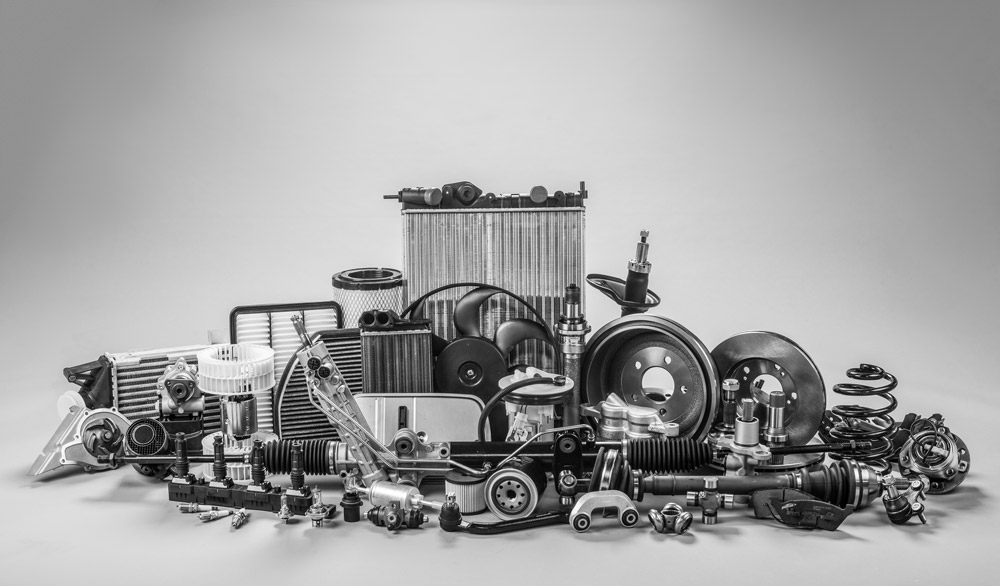
To some, the components under a car hood may seem mysterious and overwhelming. While automobiles are complex machines, a general understanding of major car parts can be beneficial for any car owner. Not only will this help them navigate a basic conversation among auto care enthusiasts, but it will also help them know when their vehicle may be in need of car repair or maintenance. Here is a breakdown of the 10 must-know car components from your automotive experts at Master Muffler Brigham City.
Alternator
While the battery is needed to start a car, the alternator keeps things powered while the vehicle is running. By turning mechanical energy into electrical energy, the alternator supplies the headlights, power windows, wipers, radio, dashboard instruments, and more with electrical current as the engine runs. The alternator also charges the battery.
Piston
A piston is a component of an internal combustion engine that moves within each cylinder, transferring the force from the ignited fuel to the crankshaft, moving the wheels.
Spark Plug
Spark plugs use energy from the battery to create sparks, igniting fuel that enters the engine. These little sparks essentially act as the firing pin that sets off the engine’s internal combustions.
Radiator
The radiator is a vital component tasked with regulating engine temperature and is located at the front of the engine, just behind the grill. Without the radiator, your engine would quickly overheat.
Catalytic Converter
The catalytic converter is a component of the emissions system that filters toxins out of engine exhaust before they are released into the air. It does so by way of chemical reactions known as redox reactions.
Muffler
A muffler is essentially your car’s noise control system, deadening the sound of escaping exhaust. We have all heard cars that are extra loud as they move down the road. These cars likely don’t have a muffler.
Shocks and Struts (Suspension)
Shocks and struts are a key part of the suspension system and are tasked with stabilizing the vehicle’s movements. Without shocks and struts, drivers and passengers alike would be bouncing down the road.
Fuel Injector
Fuel injectors spray fuel into a car’s engine very precisely at a very rapid rate. Without the fuel injector, no fuel would get to the engine.
Differential
The differential is a set of gears that transmits the right amount of power to each wheel, allowing them to move at different speeds during turns. This keeps the inside wheels from spinning out while making a turn.
Conclusion
Hopefully, now, you may know a little more about your vehicle. From the engine block to the tailpipe, your car has a lot of finely-tuned moving pieces. When just one of those pieces isn’t working correctly, it can affect the performance of the whole car. Make sure to stay on top of your maintenance and take proper care of your vehicle so it can keep you on the road for as long as possible. When repairs become necessary, feel free to drop by Master Muffler. Our trusted Utah mechanics are always happy to help.
Related Posts
Key Takeaways On average, passenger vehicle tires last 40,000 to 60,000 miles, depending on type, driving habits, and maintenance. Replace tires when tread depth reaches 2/32”, if damaged, or older than 10 years. Regular rotation, alignment, and proper inflation extend tire life. Aggressive driving, poor roads, and harsh weather shorten tire lifespan. Take advantage [...]
When you think about car maintenance, you probably focus on oil changes, tire rotations, and maybe even brake pad replacement. But what about your brake fluid? If you’ve ever wondered, “What does brake fluid do?” or “Why is brake fluid important?”, you’re not alone. Brake fluid might not be the most talked-about part of [...]
Is that high-pitched squeal from your brakes driving you—and everyone else—crazy? Don’t ignore it. Squeaky brakes aren’t just annoying, they’re your car’s way of saying something needs attention. Whether you're cruising through Salt Lake City or winding up Idaho’s mountain passes, here’s what’s likely going on, how you can fix it, and when it [...]





